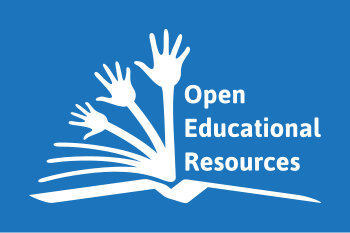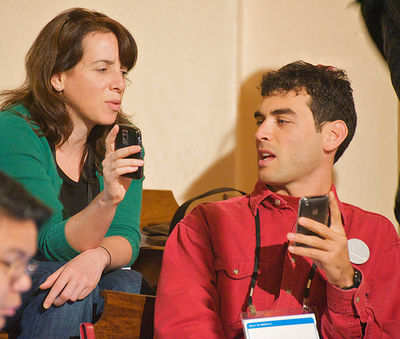Teaching approach
| Regional Relations in Asia and the Pacific (#AST1000) | |
|---|---|
| Course introduction | Welcome & objectives | Conceptual overview | Video signpost | Teaching approach | Digital literacy | e-Learning Activity - OERs | Summary |
Contents
Open educational resources
An important feature of this course is that it uses Open Educational Resources as the content basis for your studies. Open Educational Resources (OER) are digital materials that are freely available to educators, students and self/lifelong learners. OER are increasingly being integrated in open and distance education as they are not subjected to the same copyright constraints as other materials. Therefore, they are more accessible and freely available to most students. There are a number of ways to search for OER and the first e-learning activity (e-tivity) for this course will introduce you to OER and where to look for course content online.Pedagogy of discovery
This brings us to another important feature of this course which is the course pedagogy. In AST1000, we use the ‘pedagogy of discovery’ (including self-discovery) to engender a free-range learning pedagogy. This pedagogy incorporates self-directed content gathering and analysis rather than content that is pre-selected by the examiner. This approach is deliberate in order to allow you to seek out information and areas of study of personal and direct interest or relevance to your own interests or career path.
For example - perhaps you want to visit Japan or you plan to teach English there after completing your university studies. The pedagogy of discovery used in this course will allow you to focus your studies on Japan so you can enhance your knowledge and understanding of Japanese history, society, culture and foreign relations.
The objectives for each Module, which are linked to and feed directly into the overall course objectives, will guide you as to what types of content you should be exploring each week. You will be required to locate appropriate educational sources online and then read them to derive course content relevant to that particular week’s learning objectives. Therefore, the pedagogy of the course involves active bottom-up learning within an explicit top-down learning framework/scaffolding. Ultimately however, you will be the one who decides which Open Educational Resources you will focus on in order to meet the objectives set for any given Module.
Learning Literacies in a Digital Age (LLiDA) “Framework of Frameworks”
The “Framework of Frameworks” is a cornerstone of the pedagogy in AST1000. The LLiDA framework is represented in the table below. The Framework demonstrates the component competences you will develop throughout your studies in AST1000, all of which are important skills required in the Digital Age. These competences include metacognition, academic practices and information literacy, communication and collaboration skills, media, ICT, digital and computer literacy, greater participation and engagement with citizenship, and finally, employability.
| |
Component competences |
| Learning to learn, metacognition | Reflection, Strategic planning, Self-evaluation, Self-analysis, Organisation (time, etc.) |
| Academic practice, study skills | Comprehension, Reading/apprehension, Organisation (knowledge), Synthesis, Argumentation, Problem-solving, Research skills, Academic writing, Specific subject discipline skills as appropriate |
| Information literacy | Identification, accession, organisation, evaluation |
| Communication and collaboration skills | Teamwork, Networking, 'Speaking' and 'listening' skills (see below for different media) |
| Media literacy (also 'visual' and 'audio' and 'video' literacies) | Critical 'reading', Creative production |
| ICT/digital/computer literacy | Keyboard skills, Use of capture technologies, Use of analysis tools, Use of presentation tools, General navigation/UI skills, Adaptivity Agility Confidence/exploration |
| Employability | Self-regulation, Team working, Problem solving, Business and customer awareness, Innovation/enterprise |
| Citizenship | Participation and engagement, Ethicality/responsibility, Political, social, personal responsibility |
- (Source: Beetham, Helen, McGill, Lou & Littlejohn, Allison 2009, Thriving in the 21st Century: Learning Literacies for the Digital Age (LliDA project), The Caledonian Academy, Glasgow Caledonian University. Accessed 22 August 2011, http://www.caledonianacademy.net/spaces/LLiDA/uploads/Main/LLiDAreportJune09.pdf.)
Peer learning support
While this all could seem a little daunting for some, please remember you will not be alone on your information seeking journey. You will have clear guidance through e-tivities (electronic/online activities) as to what types of information you are looking for each week. On the Regional Relations Database you will be able to share your findings with your fellow students and the course e-moderator.This database is for all students to contribute web-links they have found to be useful and informative. Students can categorise the links according to the Topic and Country/Region the web-link is relevant to. You will need to write a brief note about the source as well. There is an example modelled on the Regional Relations Database. This database will be an interactive exercise to enable ideas sharing among all students. It will also be a useful source for web resources as you progress through the course, and beyond the course. Be sure to download a copy of the database at the end of the semester for future use.
Conclusion
Upon successful completion of this semester, not only will you know more about regional relations in Asia and the Pacific, but your online research skills will also have improved. You will be more adept at finding and evaluating digital information, thereby enhancing your digital literacy, but in the process, you will also be more skilled at evaluating the quality and reliability of that information.
References
Beetham, Helen, McGill, Lou & Littlejohn, Allison 2009, Thriving in the 21st Century: Learning Literacies for the Digital Age (LliDA project), The Caledonian Academy, Glasgow Caledonian University. Accessed 22 August 2011, www.caledonianacademy.net/spaces/LLiDA/uploads/Main/LLiDAreportJune09.pdf.
Harris, Robert 1997, ‘Evaluating Internet Research Sources’. VirtualSalt. Accessed 17 October 2001, http://www.virtualsalt.com/evaluat8it.htm.
Salmon, Gilly 2002, E-learning activities: The Key to Active Online Learning, Kogan, London, Accessed 22 August 2011, http://web.ebscohost.com/ehost/ebookviewer/ebook/nlebk_115618_AN?sid=58fd8e05-660d-44df-a1ca-935c5636a7f9@sessionmgr14&vid=1.

